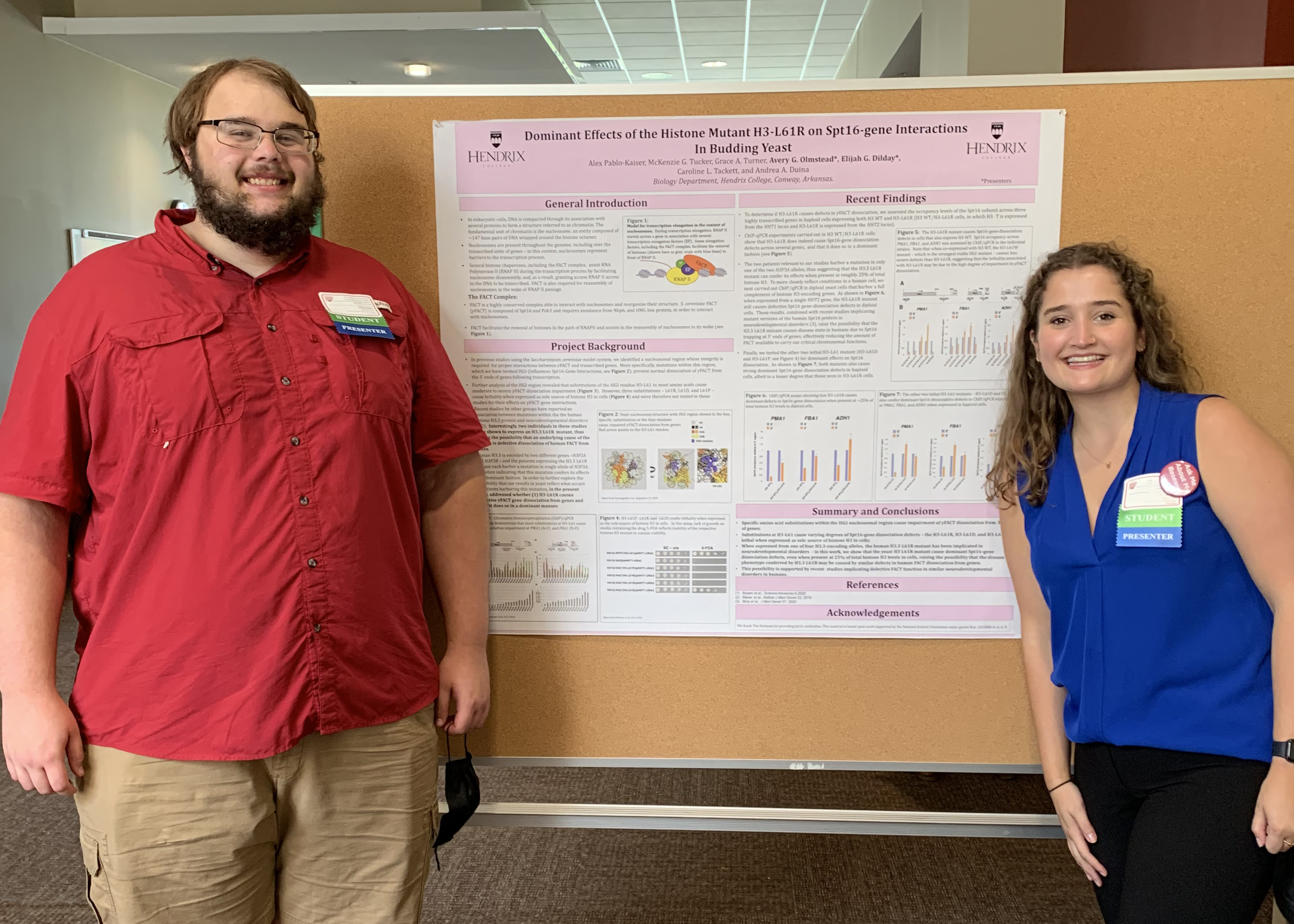NSF-funded research gives students
opportunities to learn while advancing scientific knowledge

Elijah Dilday (left) and Avery Olmstead presenting a poster on the research recently published in Epigenetics. / courtesy photo
CONWAY, Arkansas (September 16, 2022)—A research team of Hendrix
students, staff, and recent graduates, with the guidance of Hendrix Professor
of Biology Dr. Andrea Duina, has co-authored a paper published in Epigenetics,
a research journal focused on gene expression. The team included:
- Alex Pablo-Kaiser ’21 – Former Duina lab technician
- McKenzie G. Tucker ’22
- Grace A. Turner ’22
- Elijah G. Dilday ’23
- Avery G. Olmstead ’23
- Caroline L. Tackett ’22 – Current Duina lab technician
- Andrea A. Duina – Professor of biology; faculty
member at Hendrix College since 2004
Participants in the Duina lab’s projects use budding yeast cells (Saccharomyces cerevisiae) to
study and understand some of the fundamental ways that cells use genes, and
their paper, “Dominant
effects of the histone mutant H3-L61R on Spt16-gene interactions in budding
yeast,” provides a possible insight into the molecular
mechanism responsible for a neurodevelopmental disorder recently identified in
two human patients.
In brief, the paper shows that when a component
of yeast chromosomes is mutated in a specific way it can interfere with the
function of a critical protein known as Spt16 – since the human patients carry
an equivalent mutation in their chromosomes, it is possible that the mutation likewise
impairs the function of the human versions of Spt16, which could in turn
contribute to the presentation of the disease.
The research project was made possible by a National
Science Foundation research grant awarded
to Duina in 2020. This is the fifth such grant Duina has received to facilitate
undergraduate research opportunities at Hendrix.
“I am very proud of the four students
and two laboratory technicians — both recent Hendrix grads — whose hard work and
dedication to the project made this publication possible,” Duina said. “These
types of research experiences are not only critical for the advancement of
scientific knowledge, but also provide students with the type of hands-on
experiential learning that gives them an extra edge as they continue on with
their careers, be it graduate school, medical school, or other related
endeavors.”
About Hendrix College
A private liberal arts
college in Conway, Arkansas, Hendrix College consistently earns recognition as
one of the country’s leading liberal arts institutions and is featured in
Colleges That Change Lives: 40 Schools That Will Change the Way You Think About
Colleges. Its academic quality and rigor, innovation, and value have
established Hendrix as a fixture in numerous college guides, lists, and
rankings. Founded in 1876, Hendrix has been affiliated with the United
Methodist Church since 1884. To learn more, visit www.hendrix.edu.